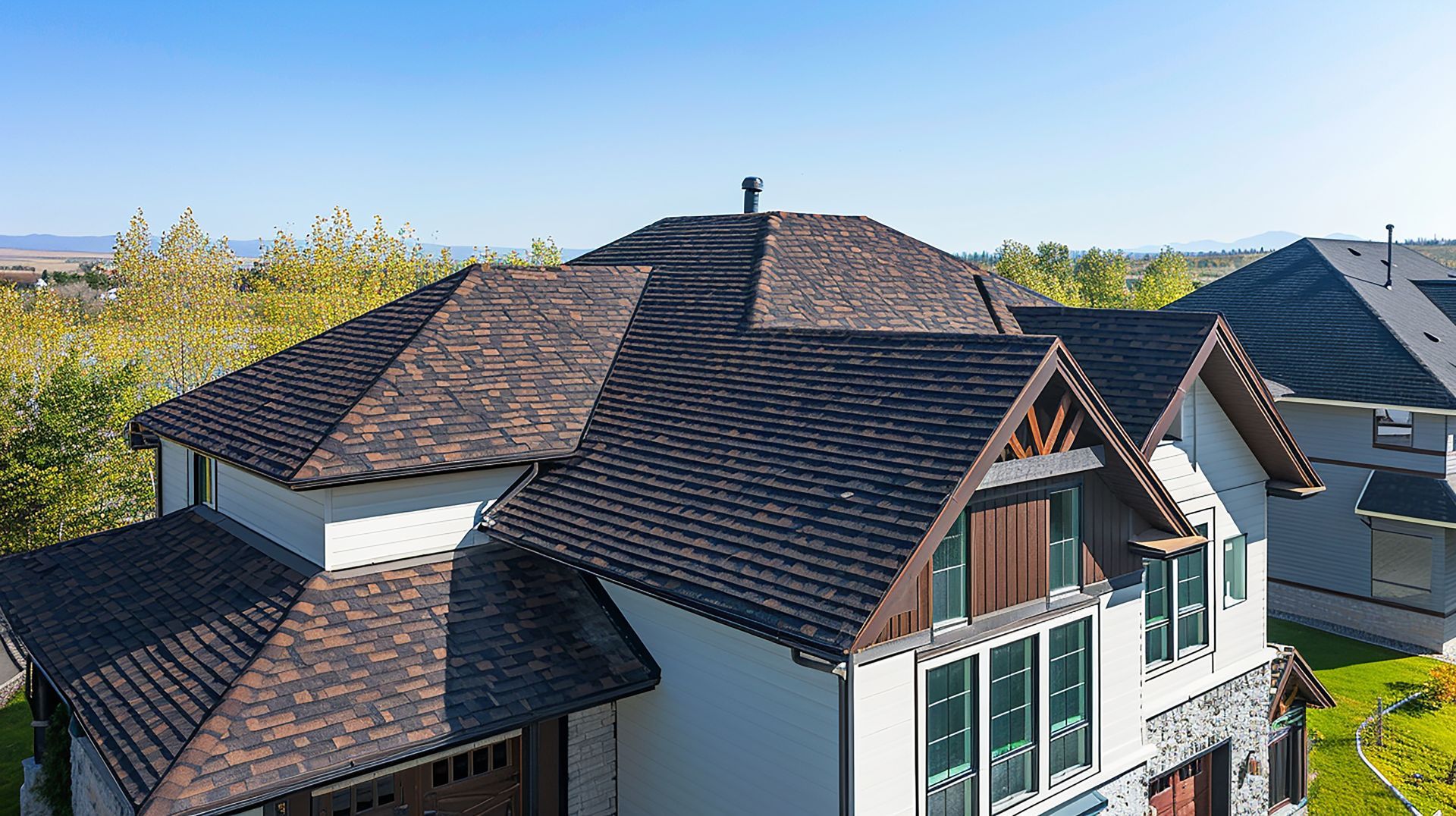Residential vs. Commercial: How Seattle Roofing Companies Handle Both
When it comes to roofing, Seattle homeowners and business owners face different challenges and needs. While both residential and commercial roofs serve the same basic purpose—protecting the building beneath them—they differ in several important ways. From materials and design to installation methods and maintenance, Seattle Roofing Companies handle these two types of projects differently. Understanding these differences can help you make informed decisions when choosing a roofing contractor for your property. In this article, we’ll explore how Seattle roofing companies approach residential and commercial roofing projects, and what you need to know to get the best results.

Key Differences Between Residential and Commercial Roofing
1. Roof Design and Structure
The most obvious difference between residential and commercial roofing is the design and structure. Residential roofs typically have a steep slope, often with gable or hip designs that are more aesthetically pleasing. These roofs are designed to shed water quickly and efficiently. In contrast, commercial roofs are generally flat or low-sloped to accommodate large HVAC systems, skylights, and other equipment.
Residential Roofs: These are often designed with aesthetics in mind, complementing the home’s overall style. Materials such as asphalt shingles, wood shakes, and metal roofing are commonly used. The sloping design allows for better water runoff, which is important in Seattle’s rainy climate.
Commercial Roofs: These roofs are designed with functionality and durability in mind. The flat design provides more space for installing HVAC systems, solar panels, and other equipment. Commercial roofing materials typically include TPO (Thermoplastic Olefin), EPDM (Ethylene Propylene Diene Monomer), and modified bitumen, all of which are durable and suitable for flat roofs.
2. Roofing Materials Used
The materials used for residential and commercial roofing differ significantly. While both types require durable, weather-resistant materials, commercial roofing often uses materials that can withstand more intense wear and tear due to larger building sizes and the demands of the business environment.
Residential Roofing Materials:
- Asphalt Shingles: The most common roofing material for residential homes in Seattle due to affordability and versatility.
- Wood Shakes: Popular for their aesthetic appeal and natural look, although they require more maintenance.
- Metal Roofing: Known for its durability, longevity, and energy efficiency, metal roofing is becoming increasingly popular for residential homes.
Commercial Roofing Materials:
- TPO: A popular material for flat roofs, TPO is energy-efficient, durable, and resistant to UV rays.
- EPDM: A synthetic rubber roofing membrane that is often used for commercial buildings due to its excellent weather resistance.
- Modified Bitumen: A bitumen-based product that is applied in multiple layers for flat or low-slope roofs.
3. Installation and Labor
Residential Roofing Installation: The installation of residential roofing tends to be simpler and quicker due to the smaller size and slope of the roof. It often involves fewer workers, and the process can usually be completed in just a few days. Residential roofing contractors in Seattle focus on aesthetics, ensuring that the roof matches the design of the home.
Commercial Roofing Installation: Installing a commercial roof is a more complex process. The size of the roof and the flat design mean that installation requires specialized techniques and equipment. Commercial roofing projects often take longer and may involve a larger team of workers, especially if the project includes additional systems like HVAC units or solar panels. The focus here is on functionality and durability to meet the needs of the business. For businesses looking to ensure long-lasting protection and performance, hiring a contractor that offers high-quality commercial roofing services is essential. These services are tailored to meet the specific demands of commercial buildings, ensuring your roof is both functional and resilient against the elements.
4. Maintenance and Repair
Both residential and commercial roofs require regular maintenance and occasional repairs, but the maintenance needs differ due to the roof’s structure and materials.
Residential Roofs: Residential roofs are easier to maintain due to their sloped design. Gutter cleaning, shingle replacement, and moss removal are typical maintenance tasks. Homeowners are usually responsible for maintaining their roof and should schedule inspections annually or after significant weather events.
Commercial Roofs: Maintenance for commercial roofs is more involved. Flat roofs are prone to pooling water, which can lead to leaks and other damage. Commercial roof maintenance includes inspecting for drainage issues, checking for cracks or punctures, and maintaining the roofing systems installed (such as HVAC units). Commercial buildings often have a professional team or contractor handling these maintenance tasks.
5. Budget and Costs
The cost of roofing for residential and commercial properties also varies significantly. Residential roofing is usually less expensive in terms of materials and installation, but costs can vary depending on the roof size, material choices, and design.
Residential Roofing Costs: Homeowners typically spend less on roofing compared to businesses, but the overall cost can be influenced by the roofing material, the size of the house, and labor costs in Seattle. Asphalt shingles are the most affordable option, while wood shakes or metal roofing may cost more.
Commercial Roofing Costs: Commercial roofing tends to be more expensive due to the larger scale of the project, the complexity of installation, and the need for specialized materials. While the initial investment may be higher, commercial roofing is designed to last longer and withstand more wear and tear, making it a worthwhile investment in the long run.
6. Permits and Regulations
In Seattle, both residential and commercial roofing projects require permits, but the requirements can be more stringent for commercial properties. Commercial roofing projects often involve more complex designs, larger structures, and additional building systems, which means that obtaining the proper permits is essential.
Residential roofing permits are typically more straightforward and are often related to the replacement or repair of an existing roof. However, for both types of projects, working with a professional roofing contractor familiar with local building codes and regulations is crucial.
Choosing the Right Roofing Contractor in Seattle
When it comes to roofing projects, whether residential or commercial, selecting the right roofing contractor is essential for ensuring the quality, safety, and longevity of your roof. The process involves more than just hiring a company; it’s about finding a contractor you can trust to handle your project with expertise, professionalism, and attention to detail. Below are expanded tips for selecting a roofing contractor in Seattle to ensure your roofing project is a success:
1. Experience: Look for Contractors with Experience in Both Residential and Commercial Roofing
Experience matters when it comes to roofing, especially if you're dealing with a complex commercial roof or a custom residential design. Contractors with extensive experience in both residential and commercial roofing can handle various challenges and are familiar with the intricacies of each type of roofing system. Seattle's diverse weather conditions, including heavy rainfall, snow, and occasional storms, require specialized knowledge.
A contractor experienced in both sectors will have a deep understanding of the unique needs of residential properties (such as aesthetic design and home value preservation) and commercial spaces (including durability, load-bearing requirements, and energy efficiency). For businesses, working with reputable commercial roof contractors ensures that your roofing project is handled with the necessary expertise and skill. Whether you're installing a new roof, replacing an old one, or conducting repairs, experience helps ensure the job is done right the first time.
2. License and Insurance: Ensure the Contractor is Fully Licensed and Insured
One of the most important things to verify before hiring a roofing contractor is whether they are properly licensed and insured. A licensed contractor means they have met the legal requirements set by the state of Washington and Seattle's local building codes. This ensures that they are knowledgeable about the latest industry standards, safety practices, and regulations.
Insurance is equally important because it protects you and your property during the project. In the event of damage to your property, accidents, or injuries that occur during the roofing process, proper insurance coverage (including liability insurance and workers' compensation) ensures you won’t be held liable. Always ask for proof of both the contractor’s license and insurance before proceeding with any project.
3. Quality Materials: Choose a Contractor That Uses High-Quality, Durable Materials
The quality of materials used in your roofing project directly impacts its performance, lifespan, and appearance. In Seattle, where weather conditions can be tough on roofs, it’s especially important to choose materials that can withstand frequent rainfall, temperature fluctuations, and occasional snow. A reliable contractor will use high-quality, durable roofing materials specifically designed to stand up to these conditions.
For residential roofs, look for contractors that offer materials like asphalt shingles, metal roofing, or wood shakes that can provide the protection your home needs. For commercial roofs, contractors should be knowledgeable about flat roofing systems, such as TPO, EPDM, and modified bitumen, which are more suitable for commercial and industrial buildings. A roofing contractor who prioritizes using top-notch materials will help extend the lifespan of your roof and reduce maintenance costs in the long run.
4. Reputation: Check Reviews and Ask for References
The reputation of a roofing contractor is a reflection of their work quality, customer service, and reliability. In the competitive Seattle roofing industry, contractors with a proven track record of satisfied clients are more likely to provide exceptional service. Before hiring a contractor, take the time to read online reviews, testimonials, and ratings on platforms like Google, Yelp, or the Better Business Bureau. Positive reviews indicate that the contractor consistently delivers on their promises.
Additionally, ask the contractor for references from previous clients. Speaking with past clients can give you insight into the contractor's communication, work quality, and ability to meet deadlines. If possible, visit some of the contractor’s completed roofing projects in your area to see firsthand the quality of their work. A strong reputation in the local community is a good indicator that the contractor is trustworthy and delivers high-quality results.
5. Written Estimate and Contract: Get a Detailed, Written Estimate and Contract Before Starting the Project
A professional roofing contractor should provide a detailed, written estimate for your roofing project. This estimate should outline all costs, including materials, labor, permits, and any additional services. It should also specify the scope of work and the timeline for completion. Having a written estimate helps you understand the total cost of the project and avoid any surprises down the road.
Before the work begins, the contractor should also provide a formal contract that clearly outlines all aspects of the project. This includes the payment schedule, warranty information, and the scope of the work. A reliable contractor will be transparent with their pricing and ensure that both parties are on the same page regarding the project details.
6. Warranty and Aftercare: Ensure the Contractor Offers a Solid Warranty and Aftercare Services
A reputable roofing contractor should offer a warranty for both the materials and the installation work. The warranty provides peace of mind by ensuring that any issues arising after installation, such as leaks or defects, will be covered. Residential roofs typically come with a 20-30 year warranty for the materials, while commercial roofs may offer warranties of 10-20 years, depending on the material used.
In addition to the warranty, look for contractors that offer aftercare services, such as regular maintenance or inspections. Roofing systems require periodic checks to ensure they’re functioning properly, especially after severe weather. A contractor that offers aftercare services shows commitment to the long-term performance of your roof.
7. Communication and Professionalism: Look for a Contractor Who Is Easy to Communicate With
Effective communication is crucial throughout the roofing project. A contractor should be responsive to your questions, concerns, and requests for updates. They should take the time to explain the process, the materials being used, and any potential challenges that may arise. Clear and open communication helps prevent misunderstandings and ensures the project is completed smoothly.
Additionally, professionalism in all aspects of the work—from punctuality and appearance to the quality of the workmanship—is essential. A professional contractor will provide timely updates, keep the worksite clean and safe, and treat your property with respect.
Final Thoughts
Understanding the differences between residential and commercial roofing can help you make informed decisions when it comes to your roofing needs. While both require skilled contractors and quality materials, the approach to installation, maintenance, and cost will vary significantly. Seattle roofing companies are well-equipped to handle both types of projects, ensuring that your roof will be durable, functional, and aesthetically pleasing. Whether you're a homeowner or a business owner, working with an experienced contractor is key to ensuring your roof lasts for years to come.
If you’re looking for expert roofing services in Seattle, whether for your home or commercial property, don’t hesitate to contact trusted local roofing contractors who specialize in both types of projects.
We Offer All the Services You Need in One Place! We Will Save You Time and Money!
Call Us at (425) 521-7916 Now to Get a Free Estimate or a Free Consultation for Any of Our Services!



